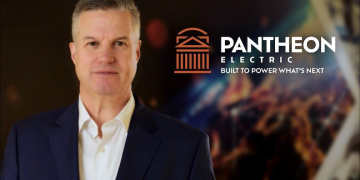PharmaCann LLC, one of five companies approved by the state to grow and sell medical marijuana, will soon launch its Orange County facility that will harvest “tens of thousands” of medical cannabis plants ”” just don”™t call it pot.
Professional language, such as “medical cannabis” or “medical marijuana,” is preferred to the slang of “pot” or “weed,” according to patient guides the company handed out during a tour of its new Hamptonburgh facility on June 27.
That advice went with the theme of the facility tour, which was organized by the Orange County Partnership and featured appearances from elected officials and business leaders. Jeremy Unruh, general counsel and chief compliance officer for PharmaCann, stressed the professional, secure nature of the operation to the group. He said he hoped it would soothe any concern about having medical marijuana growing in the area.
“Are we letting some terrible scourge in our country be present in my backyard?” Unruh asked. “My job today is to dispel any of those notions.”
The tour included state Sen. John Bonacic, Assemblyman James Skoufis, Orange County Executive Steve Neuhaus, Orange County Legislature Chair L. Stephen Brescia and Hamptonburgh Town Supervisor Robert Jankowski.
“We want to be viewed as a normal business,” Unruh said. “We want to pay taxes, we want to have the banking relationships that any other business has.”
Unruh and a group of employees at the lab led the group through the 135,000-square-foot facility in the Hudson Valley Crossing corporate park on Neelytown Road.
PharmaCann spent about $25 million building the lab, Unruh said.
As part of the state”™s licensing requirement, PharmaCann had to produce medical marijuana within six months. Construction went beyond that timeframe, however, so the company began growing a small amount of medical marijuana in trailers on the property to meet the state requirements.
But now the facility is ready to start producing and needs only final approvals from the state Department of Health and the town”™s building inspector to launch its production.
The PharmaCann lab features 16 grow rooms, each with heating lamps and plants lined up about a dozen across. PharmaCann representatives said the facility will be able to harvest product year round.
From the grow area, the cannabis will be harvested and dehydrated on site, then made into an oil for sale. State law doesn”™t allow for the smoking of medicinal marijuana, instead it can be taken via liquid or oil capsules or vaporized.
Unruh showed off the security measures of the facility throughout the tour.
Those measures include specialized security cameras and motion sensors throughout the facility and a production and storage area with reinforced concrete walls, plus a room for the final product that Unruh said even the CEO of the company can”™t access.
Security is overseen by a former New York City Police Department supervisor. Unruh himself has a history in law enforcement. He served as an assistant state attorney in Illinois for six years.
“We are not black marketeers, I don”™t have a black market background,” Unruh said, adding that you won”™t see “pot leaves emblazoned on the wall” at any of PharmaCann”™s four New York dispensaries.
PharmaCann is based in Illinois, where it runs two medical marijuana plants and four dispensaries.
Started in 2014 by partners in a Chicago law firm, PharmaCann was one of five companies the New York State Department of Health awarded medical marijuana licenses to in July 2015 under the Compassionate Care Act, signed into law by Gov. Andrew Cuomo.
The law allows patients suffering from conditions such as epilepsy, HIV or AIDS, Parkinson”™s, multiple sclerosis and Huntington”™s disease, to be certified by a doctor to receive medical marijuana from a dispensary.
But many would argue the implementation of this law hasn”™t exactly been smooth. From the start, advocates for medical marijuana questioned whether New York”™s program was big enough to meet the demand.
“There are huge areas of the state where patients will have to travel enormous distances to get medicine,” Julie Netherland, a deputy state director at the Drug Policy Alliance, a drug reform group, told The New York Times following the state”™s announcement that granted companies licenses.
The Times article noted that California, the first state to adopt medical marijuana in 1996, had hundreds of dispensaries. The five companies licensed in New York can build four dispensaries each.
There have also been concerns from the medical community about the legality of the program, causing doctors to be slow to complete the four-hour training course to become certified to recommend medical marijuana to patients, a report from The Journal News found.
Cuomo has publicly supported the rollout, saying he hasn”™t heard any concerns about availability of doctors.
“I haven”™t heard issues that people can”™t find access,” Cuomo said last week. “You don”™t have one on every corner because you don”™t have that kind of demand. But if you need the drug, you can get the drug.”
More than 600 doctors have registered and have certified about 5,000 patients, according to the state Department of Health. Asked about patient access during the walkthrough, Unruh acknowledged there have been difficulties. He called it a “sticking point” in the new law.
“Patients don”™t know where to go to find a physician, those lists are not publicly available,” he said, adding people often turn to social media to find doctors who can certify patients.
The company has also started outreach efforts to educate doctors on what it means to register in the program, Unruh said.
PharmaCann”™s lab can only provide medical marijuana to its four dispensaries, which are licensed as PharmaCannis. The dispensaries are in Buffalo, Syracuse, Albany and the Bronx.
A separate company, Vireo Health of New York, opened a dispensary in White Plains in January. Another company licensed under the program, Etain LLC, opened a dispensary in Yonkers in April. Etain also runs a dispensary in Kingston.
Unruh said it”™s unclear exactly how much medical marijuana PharmaCann will produce yearly from the Hamptonburgh facility, but he expects to harvest tens of thousands of plants per year.
PharmaCann has about 15 employees in Hamptonburgh now, but will employ 70 people once the facility is fully up and running, Unruh said. The company is looking for a wide range of employees, including technician jobs, chemists, security and warehouse jobs.
















